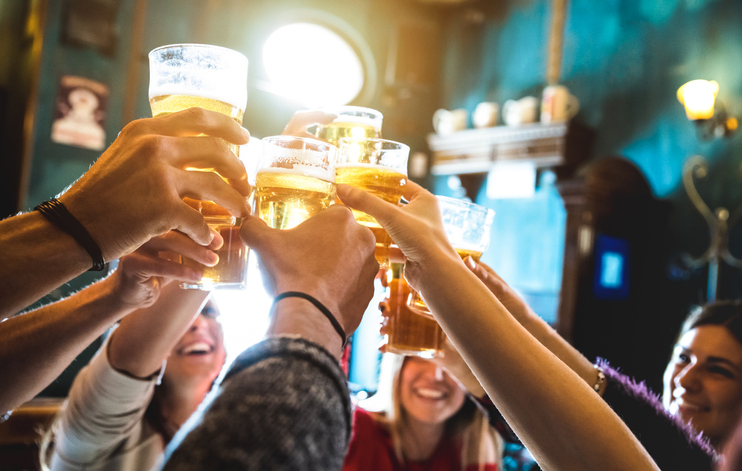Hazards of Holiday Drinking and Tips for Maintaining Sobriety for Individuals with Alcoholism
Holiday-related alcohol consumption is a widespread cultural phenomenon with peaks during celebratory seasons. According to the National Institute on Alcohol Abuse and Alcoholism (NIAAA), there is a noticeable increase in alcohol consumption during holidays, such as Christmas and New Year's. The allure of festive drinks and social gatherings often leads to more frequent and heavier drinking.

There are significant gender disparities in holiday drinking. While both men and women partake in festive drinking, studies suggest that men are more likely to engage in risky behaviors and consume larger quantities of alcohol during the holidays. Women, on the other hand, may be at a greater risk of adverse health effects due to their typically lower tolerance for alcohol.
Teenagers and young adults are particularly susceptible to the hazards of holiday drinking. Inexperienced drinkers may overindulge, leading to accidents, impaired judgment, and risky behaviors. Adolescents are also at risk of long-term alcohol-related issues, such as addiction and cognitive impairments, when holiday drinking patterns are established at a young age.
LGBTQ+ and non-binary identifying individuals report heightened tension and stress during the holidays. Excessive drinking may result from depression, anxiety, and feelings of rejection for freely expressing their authentic selves. In 2015, the Substance Abuse and Mental Health Services Administration’s (SAMHSA) National Survey on Drug Use and Health (NSDUH) found that LGBQ adults had almost double the rates of an alcohol or drug use disorder in the past year compared to heterosexual adults, 15 and eight percent respectively.
Binge drinking is a significant concern during the holidays, as individuals may consume excessive amounts of alcohol in a short period. This behavior can lead to alcohol poisoning, accidents, and impaired decision-making. Binge drinking is associated with an increased risk of injuries, violence, and alcohol dependence. Large amounts of alcohol consumed in a very short period of time can result in life-threatening alcohol poisoning. Symptoms include confusion, vomiting, slow or irregular breathing, hypothermia, and, in severe cases, coma or death. Emergency medical attention is critical in such situations.
Certain individuals are more vulnerable to the hazards of holiday drinking, including those with a history of alcoholism, individuals with mental health disorders, and people taking medications that interact negatively with alcohol. Alcohol-dependent individuals may find it challenging to control their consumption during the holidays, leading to a heightened risk of relapse.
Tips for Maintaining Sobriety
For the still suffering alcoholic and those experiencing sobriety, maintaining abstinence during the holidays can be challenging. Here are some helpful tips:
- Plan Ahead: Create a strategy for holiday events, including “escape routes” if you feel overwhelmed.
- Seek Support: Reach out to support groups such as the Fellowship of Alcoholics Anonymous (A.A), friends, or family members who can provide assistance and encouragement.
- Avoid Triggers: Identify and avoid situations or people that may trigger your desire to drink.
- Focus on Non-Alcoholic Options: Enjoy non-alcoholic beverages to participate in the festivities without alcohol.
- Practice Self-Care: Prioritize self-care by getting enough rest, eating well, and managing stress.
- Develop Coping Strategies: Learn healthy adaptive coping mechanisms for dealing with stress, anxiety, and cravings.
References
- Alcoholics Anonymous.
- NIAAA. 2022. The Truth About Holiday Spirits
- NIAAA. Alcohol Treatment Navigator.
- SAMHSA. 2016. NSDUH Data Review: Sexual Orientation and Estimates of Adult Substance Use and Mental Health: Results from the 2015 National Survey on Drug Use and Health
